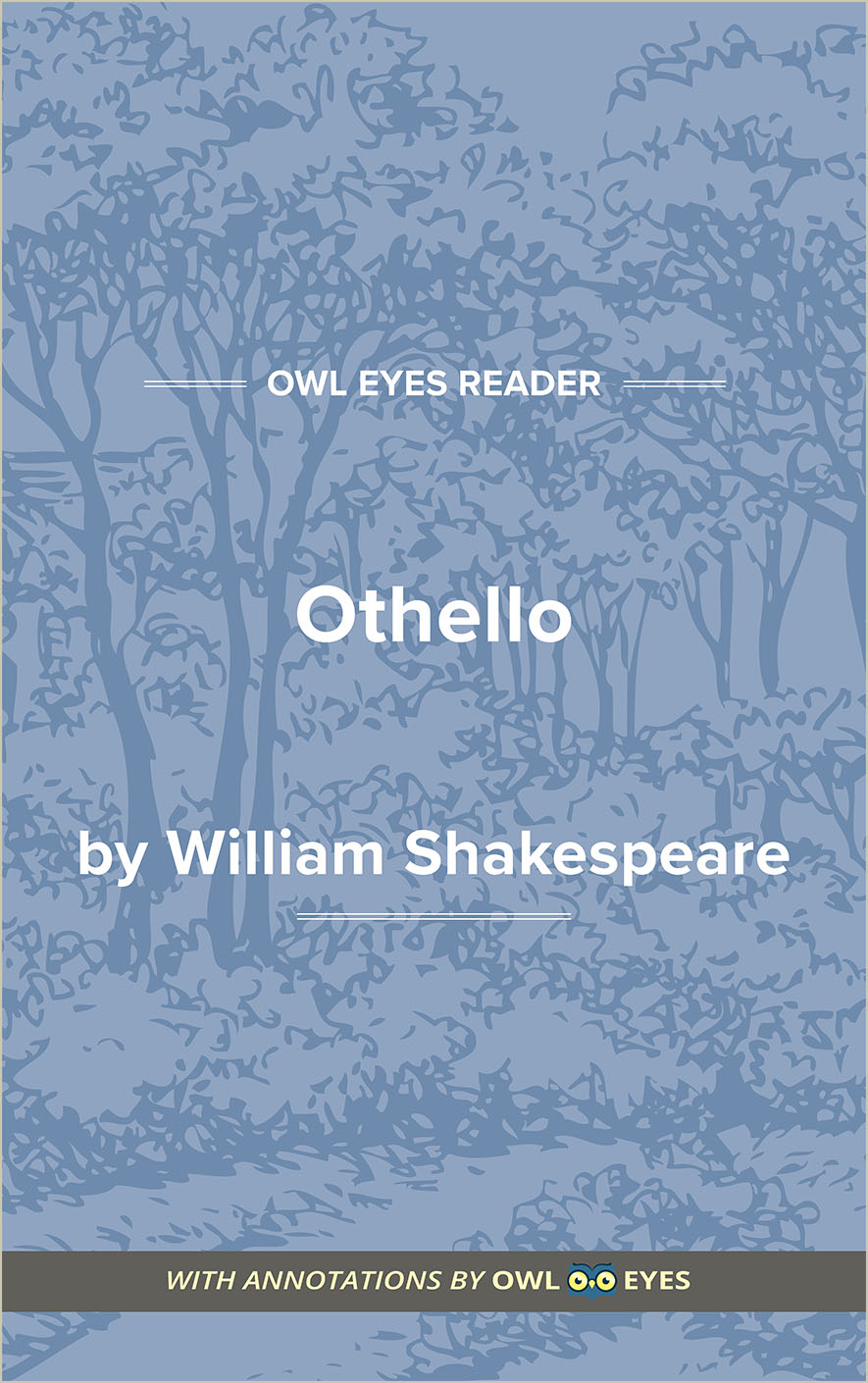- Annotated Full Text
- Literary Period: Renaissance
- Publication Date: 1604
- Flesch-Kincaid Level: 6
- Approx. Reading Time: 2 hours and 14 minutes
Othello
“Have you prayed tonight, Desdemona?” This is one of the most haunting and memorable lines of Shakespeare’s Othello. The titular and main character’s engagement in murder, jealousy, and betrayal could easily portray him as the villain; however, in Othello Shakespeare creates one of literature’s best villains, Iago. Iago is Othello’s ensign in the Venetian military and most trusted advisor. He decides to bring about the general’s destruction, and embarks on a plot to make Othello believe his wife has been unfaithful with Cassio, Othello’s favorite lieutenant. Does Iago do this out of envy? Racist sentiments? Indignation? In the few soliloquies we are given to explain Iago’s reasoning, Shakespeare denies the audience any concrete motive as to why Iago might enact his heinous scheme. This sociopathic plot and manipulation of an honest general has been controversial on the stage since its first performance in 1604. The interracial relationship between Desdemona and Othello was seen as scandalous until as late as the mid 1920s, and for this reason Othello was typically played in blackface to prevent a black man from kissing a white woman on stage. Though times have changed to prevent offensive practices such as black face, Othello remains a popular play in professional and community theater alike for its social commentary and portrayal of the darkness within reach of human capabilities.
- Annotated Full Text
- Literary Period: Renaissance
- Publication Date: 1604
- Flesch-Kincaid Level: 6
- Approx. Reading Time: 2 hours and 14 minutes

